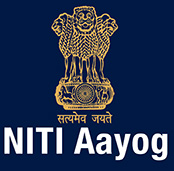Consumer in Post-Corona India
While lockdowns were an ideal measure to limit the transmission of Covid-19, they had unintended con-sequences, especially in a developing country like India, where majority of the population lives hand to mouth. With the closing down of factories and industries for months, there was an adverse impact on income. The recent decline in India's quarterly GDP by 23.9 percent as well as the decline in private consumption expenditure by 26.7 percent in the April-June '20 quarter have further fuelled concerns about the economy. Median forecasts from RBI’s recent survey indicated a contraction of 5.8 percent in India’s GDP for 2020-21. ADB has also predicted a contraction of 9 percent in India’s GDP for FY2021.
As the country recovers from the consequences of the lockdown, this article focuses on the impact on private consumption in the coming year. Private consumption accounted for 57 percent of India’s GDP in FY2020 and provided employment to over 45 million people.
Impact of Recession on Consumption
During the last global recession, India’s private consumption expenditure growth decelerated from 7.3 percent in FY 2008 to 4.5 percent in FY 2009. Among all sectors, growth in expenditure on restaurants and hotels, clothing and footwear, education, health and transport decelerated. The impact may be greater this time, due to the costs of the pandemic and an increased share of these sectors in private consumption, from 30 percent in FY 2008 to 34 percent in FY 2019.
The transport sector would be adversely affected as travel and tourism are likely to remain limited. The decrease in education expenditure may be greater, as demand for additional coaching may reduce and an increased preference for digital education will result in reduced expenditure, especially at the graduate and postgraduate levels. Spending on restaurants, hotels and in-store sales will depend on sanitary measures practiced and income shocks.
As the number of active Covid-19 cases continue to rise, the demand for healthcare services, particularly voluntary healthcare services and medical tourism may reduce. Nonetheless, the impact may be limited with the wider adoption of tele-health services. Other contributors like health insurance and NGO health expenditure are likely to provide a buffer to the overall expenditure on health.
Spending on recreation and culture, a sector that exhibited resilient growth during the last recession, could be adversely affected. Spending on crowded events, contact sports, movie halls, and the like, would be minimal; the only buffer would be digital alternatives.
Current Consumer Perceptions
Consumption is not only a function of income but also consumer expectations. The Consumer Sentiment Survey by RBI reported an all-time low in consumer confidence in July, whereas the future expectations index recovered from the pessimism zone, indicating improved expectations for the next year.
McKinsey also conducted a survey on consumer sentiment in India in June, which indicated that over 75 percent of the respondents will be more cautious about spending in the near term. While 58 percent of the sample indicated a loss in income due to Covid-19, 51 percent were optimistic about an economic recovery in the coming months. CMIE also recorded a 58 percent decline in consumer expectations in July.
With the resumption of economic activity, future economic expectations turn optimistic, however, currently reduced incomes and low consumer sentiment may result in lower spending in the near term. Thus, transitory support to incomes and liquidity is crucial to support consumption and ensure economic recovery. The government has been cognizant of this and has been very proactive in this regard. Several reforms to support incomes had been initiated during the lockdown, including relaxations and extensions to support exporters, credit support to agricultural supply chains and respite for salaried employees. Support to rural population and returning migrants was provided through direct benefit transfers and additional impetus to MGNREGA.
As part of the Atmanirbhar Bharat package, measures have been taken to reduce immediate tax burdens, support to industry, especially MSMEs, additional support to migrant workers and vendors has been provided, among other reforms to support incomes.
Government support to the entire private sector, targeting the salaried and the self-employed, is essential, which will eventually feed into the incomes of the unorganized sector, through continued or increased consumption. Also, more stringent sanitary and social distancing guidelines may be issued and enforced in public spaces, including restaurants, shops, and offices to enable people to safely resume their daily activities and consumption, without compromising the overall Covid-19 infection rate. While external shocks may be out of our control, we must strive to promote domestic production and make conscious choices to buy local products and support the domestic economy.
*Priyanka Dua is a Young Professional, NITI Aayog. Views expressed are personal.
 National Portal Of India
National Portal Of India 








